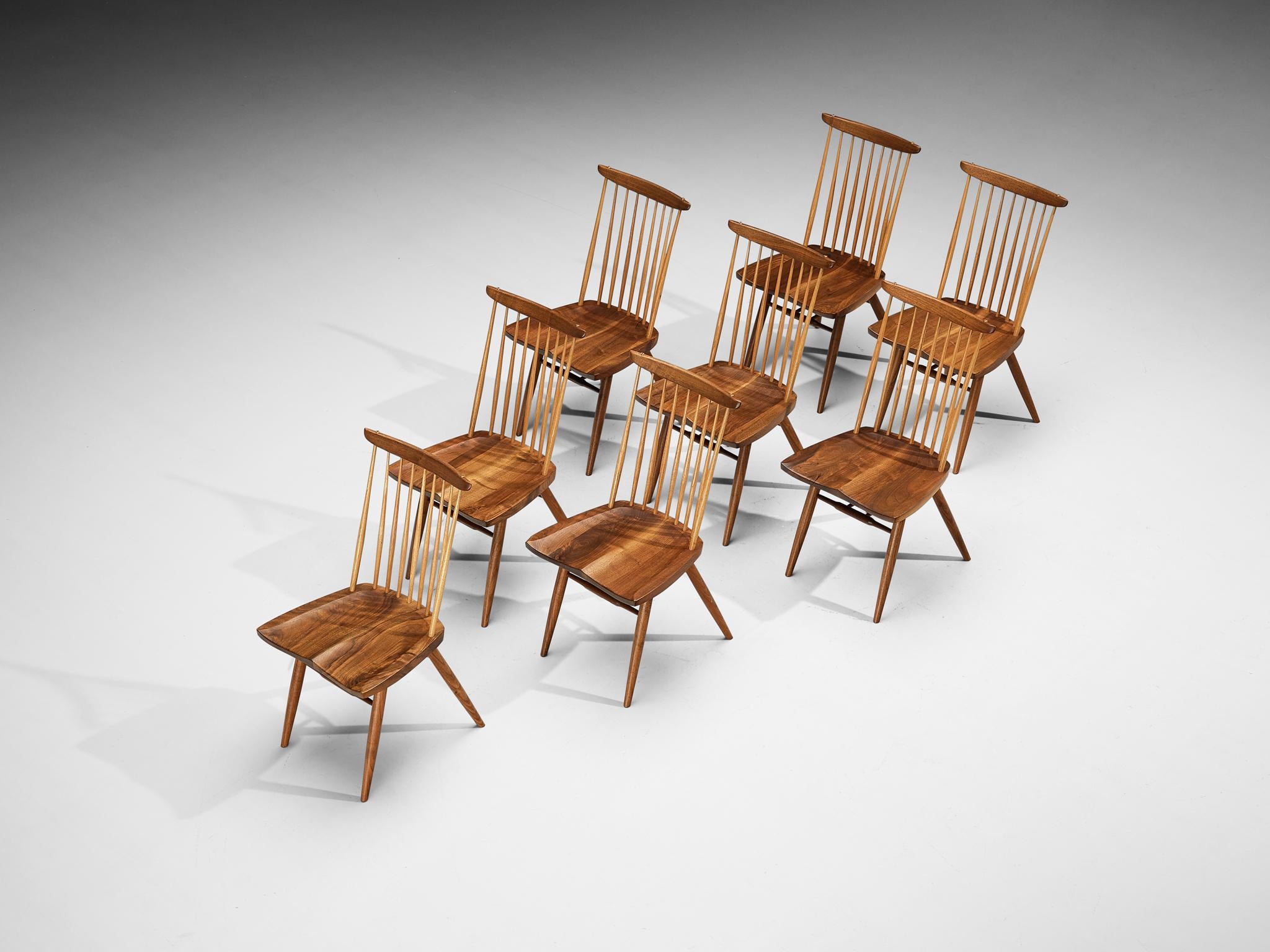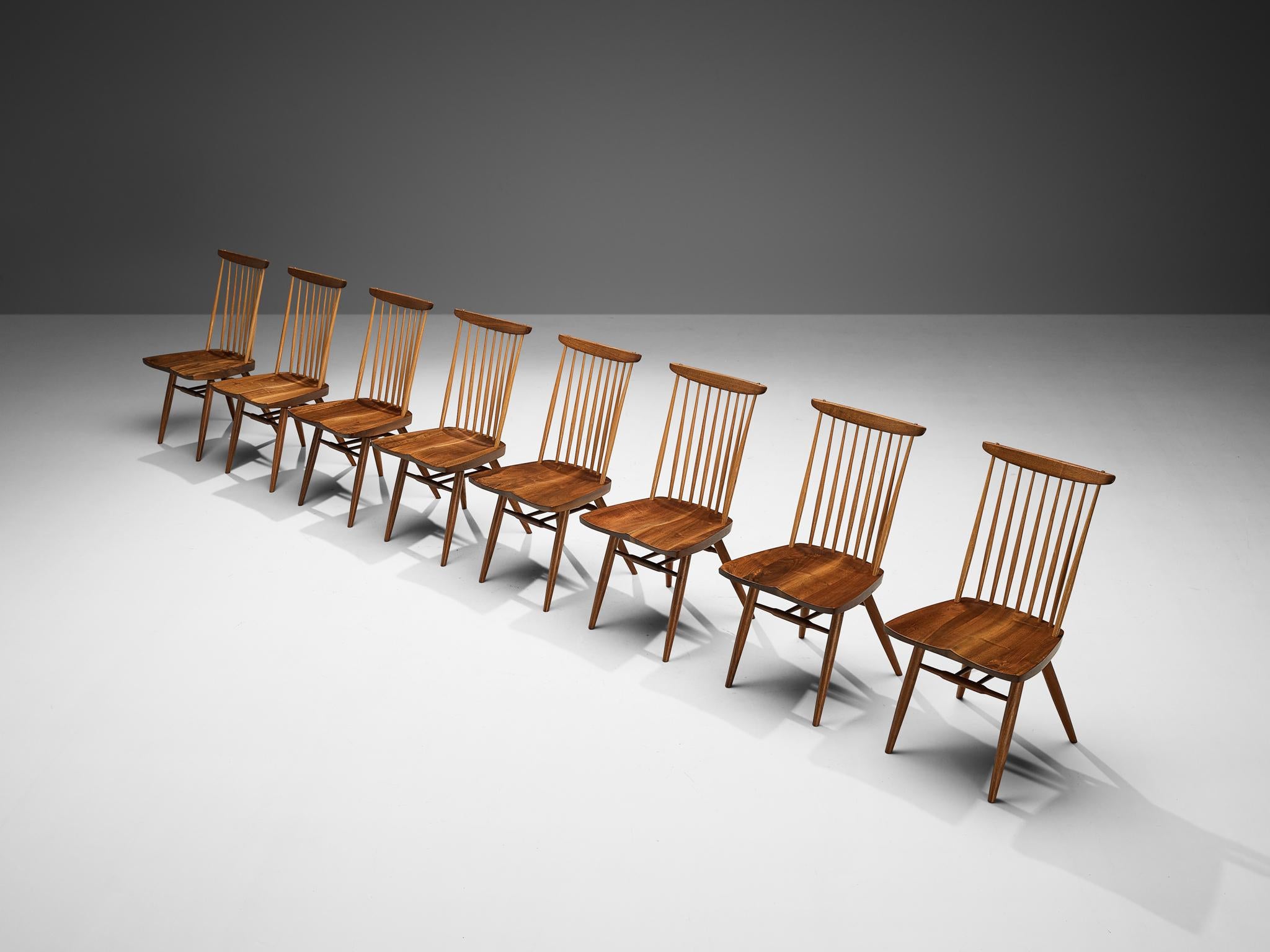












George Nakashima 'New' Dining Chairs in Walnut and Hickory
George Nakashima, ‘New’ dining chairs, American black walnut, hickory, United States, 1975
With regard to its essential form, material use, and woodwork, this ‘New’ dining chair is a testimony to George Nakashima's expert craftsmanship and distinctive methodology. This chair was specially designed for a private client in 1975. The design is Nakashima's modern take on the traditional English Windsor chair. The backrest is structured with spindles crafted from hickory. The seat is meticulously executed with subtle carved finishes, ensuring an ergonomic seating experience. The wood used in its construction boasts a pronounced texture, highlighting the expressive grains and varied tones that lend it a natural and organic allure. Nakashima succeeded in creating a durable piece of furniture with a timeless aesthetic and impeccable quality made possible by his close relationship with nature.
George Nakashima (1905-1990) was a well-known woodworker, architect and furniture designer from Japanese descendants. He was born in Spokane, Washington and enrolled in the University of Washington program in architecture. After his graduation in 1931, he decided to live his life as a bohemian in France. Afterwards, he spent some time in North Africa and eventually settled in Japan for some time. There, he started working for Antonin Raymond, who was an American architect. While working for Raymond, Nakashima extensively toured Japan while trying to understand the Japanese architecture and design. Around 1940, Nakashima decided to leave Japan and returned to the US. However, like many others with a Japanese ancestry, he was interned during World War Two and sent to Camp Minidoka in Idaho. There, Nakashima met a master woodcarver who tutored him in Japanese crafting techniques. From him, he learned to master traditional Japanese hand tools and joinery techniques. From here onwards, he began to use woodworking with discipline and patience, striving towards perfection in his designs. In 1943, he was released from the camp and invited by Antonin Raymond to live in his farm in New Hope, Pennsylvania. During this period, New Hope formed the home port for many great designers such as Frank Lloyd Powell and Paul Evans. Nakashima was a very spiritual and philosophical designer. The basis of Nakashima's work was derived from his practice of integral yoga. Therefore, primary goal of Nakashima's work was to live in harmony with nature rather than to destroy it for their own use. Above all, Nakashima wanted to embody a message to all modern societies that we must constantly remember the eternal in all that we do. He often said of his own work that he gave trees a second life. His designs are known for their exquisite craftsmanship and are often 'signed' with dovetails and butterfly connections. With these ideas in mind, Nakashima created his own style based on Japanese designs and shop practices, combined with the American and International Modern Styles. Therefore, he became one of the best 20th century American Art furniture designers.
Please note that the listed price, is the price per chair.
Please note that the price is per item.
VAT within the EU: When buying or delivering an item within the EU, VAT usually applies and will be added.
Choose options













Product Details